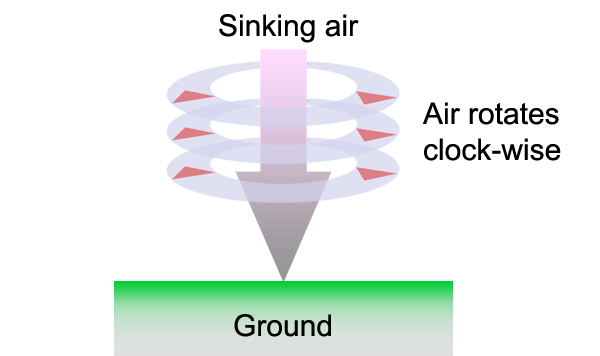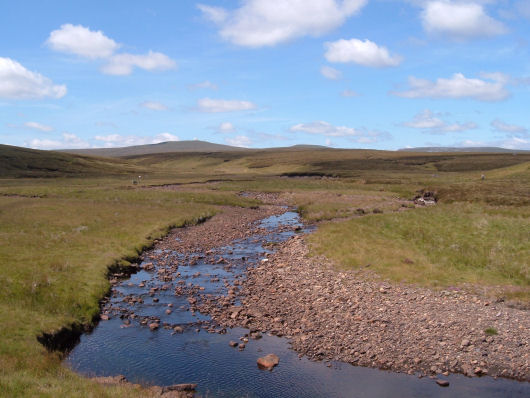Areas of sinking air which result in high pressure are called anticyclones (the opposite to an anticyclone is the cyclone or depression, which is covered next).
High pressure systems have small pressure gradients (ie the air pressure doesn't change rapidly). This means that the winds are gentle. As the air sinks, it warms up, leading to warm and dry weather.
Anticyclones are much larger than depressions and produce periods of settled and calm weather lasting many days or weeks. Anticyclones often block the path of depressions, either slowing down the bad weather, or forcing it round the outside of the high pressure system. They are then called 'Blocking Highs'.
As air descends, air pressure increases. When air hits the ground, it has to go somewhere. The earth's rotation makes the air change direction. In the Northern Hemisphere the air is pushed clockwise. In the Southern Hemisphere the air is pushed anticlockwise. This can be seen in the diagram below (which shows a northern hemisphere anticyclone).

Weather conditions in the UK can vary between summer and winter anticyclones, as described below.
Characteristics of summer anticyclones
- Few or no clouds. Strong sunshine will make it hot
- Light winds
- Cooling of ground leading to morning mist
- Warm moist air rising from the ground forming thunderstorms
- Cloud cover over Eastern England caused by light winds blowing over the cooler North Sea
Characteristics of winter anticyclones
- Cloudless skies
- Temperature drop, making the days cold and the nights even colder due to lack of cloud cover
- Fog and frost forming at night
- Cold air from Asia bringing snow to the east of the UK
Exercise

Now you know the characteristics of anticyclones, try looking through the ECN archive of photos, taken at our sites, and see if you can find pictures which appear to have been taken during periods of high pressure. You could also look at photos you have taken yourself.